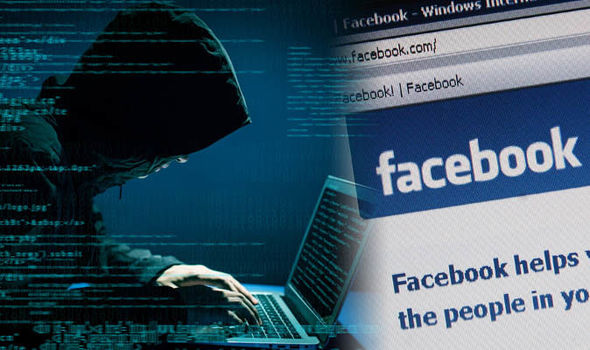Facebook is part of everyday life for millions of Nigerians, especially the youths. In there, they interact with their friends and colleagues, follow their favourite celebrities, clerics and scholars; and many of them get the latest news from there.
No wonder hundreds of them now see Facebook as an extension of ‘real life’ they can’t do away with. This is why having your Facebook account hacked can be more than just humiliating, it can shatter your schedule and affect your ‘life’. Social media experts said a hacked Facebook account could damage your reputation, expose private information, or even cost your life savings. But if you suspect that your Facebook account has been hacked, the first thing to do is change your password. Here are some other things you should protect your Facebook account.
- 4,683 Nigerians get second dose of AstraZeneca vaccine — FG
- Tinubu harps on unity, says Nigeria not a rat village
Create a strong, secure password. Your Facebook password should be difficult to guess, yet easy for you to remember, according to wikihow.com. .Avoid including your name, birthdate, pets, or common words in your password. The longer the password, the more difficult it will be for others to crack. One way to create a strong password is to think of a long-phrase or series of words that you can remember, but that nobody would ever guess. Always include numbers, a mix of upper- and lower-case letters, and symbols in your passwords. Aim for at least 10 characters. Try making an acronym out of a memorable sentence or song lyrics. For example, “I’m gonna take my horse to the old town road” could be iGTMhtthotR9!
Do not use your Facebook password on any other website or app. You should have a different password for every service you use, wikiHow said. For example, let’s say you use the same password for Facebook as you do for TikTok. If your TikTok is hacked, the hacker can also gain access to your Facebook account.
Use a password manager. As you create more strong and unique passwords, it will be difficult to remember them all. There are many good password managers available that will encrypt and safely store your passwords so you only have to remember one master password.[3] Some popular options are LastPass, Dashlane, and 1password. You might even have a password manager built into your operating system. For example, if you have a Mac, iPhone, or iPad, you can use the iCloud Keychain for free. If you’re using a browser that saves your passwords, such as Google Chrome, you’ll be required to enter a master password to see them in plain text. In the case of Chrome, you’ll have to enter your Google password. If it’s Microsoft Edge and you’re using Windows 10, you’ll have to confirm your default sign-in password or PIN.
Change your password once every six months. This goes for all your password, not just Facebook. Set a reminder on your calendar if it’s difficult to remember.
Do not share your Facebook password with anyone. In fact, don’t share any of your passwords with anyone! Nobody from Facebook or any other service will ever request your password.
Only log in on trusted computers. If you are using a computer that you don’t know or trust, avoid doing anything that requires you to enter your password. Hackers commonly use key loggers on computer systems that record everything you type, including passwords. If you must log in on a computer you don’t trust, you can request a one-time password from Facebook in some regions. To do this, send a text message to 32665 (if you’re not in the US, see this list for your number) containing the letters otp. As long as your mobile phone is linked to Facebook, you’ll receive a 6-digit temporary passcode you can use in the “Password” blank to sign in.
If it’s not possible for you to use a one-time password and you absolutely must sign in, change your Facebook password as soon as you’re back at your own computer, phone, or tablet.
Avoid using the “remember password” feature on computers other than your own. If you sign in to Facebook on a public computer (or even at a friend’s house), you may see a “remember password” prompt that asks if you’d like to save the password. Choose the Not Now (or similar) option, or else other users of that computer can gain access to your account.
Enable two-factor authentication. Two-factor authentication gives your account an extra level of security by requesting a security code when you log in from an unknown browser. You can choose to receive this code via SMS text message or using an authentication app like Google Authenticator. After setting up two-factor authentication, you’ll be given options for recovering your account in case you lose access to your second device (your phone).
On a Computer:
Go to https://www.facebook.com/settings?tab=security.
Click Edit next to “ Use two-factor authentication.”
Select Use Text Message and follow the instructions to receive codes via SMS (most common), and follow the on-screen instructions.
Select Use Authentication App to use an authentication app like Duo or Google Authenticator, and follow the on-screen instructions.
Using a phone or tablet:
Open the Facebook app and tap the menu (the three horizontal lines) or the large F at the bottom-center.
Navigate to Settings & Privacy > Settings.
Tap Security and Login.
Tap Use two-factor authentication.
Tap Use Text Message and follow the instructions to receive codes via SMS (most common), and follow the on-screen instructions.
Tap Use Authentication App to use an authentication app like Duo or Google Authenticator, and follow the on-screen instructions.
Make sure you’re logging in on the correct website. If you’re using a web browser to access Facebook, make sure the address bar actually says www.facebook.com and not something like facebook.co, face.com, or facebook1.com, etc. Phishers often choose sites that you may accidentally type into your address bar when in a hurry.
Be especially careful when clicking links in email messages from Facebook. Scammers may send emails that look like they are from Facebook but are rogue sites that steal your data. If you click or tap a Facebook link in an email and you see any domain name that isn’t “facebook.com,” do not enter your password or any other personal info.
Do not accept friend requests from people you don’t know. Scammers can create fake accounts and friend people. Once they’ve friended you, they can spam your timeline, tag you in posts, send you malicious messages, and even target your friends.
If your birthday and location are viewable by your Facebook friends, and you regularly update your whereabouts, scammers might be able to use your details and updates to crack your passwords or even break into your home when tknow you’re away on vacation.
Be wary if you receive a friend request from someone you think you’re already friends with. Scammers often mimic real peoples’ profiles and try to make friends with their friends.
Click carefully. Your friends aren’t immune to spam. If a friend posts a suspicious link or “shocking video” or sends something strange in a message, don’t click it—even if it’s from someone you know. If one of your Facebook friends clicks on a spam link, they could accidentally send it over to you.
This also goes for sketchy looking websites, browser plug-ins and videos, and suspicious emails and notifications. If you ever receive an email asking for your password for any account that you have, do not respond. Reputable companies will never request your password over email.
Block suspicious people on Facebook. If someone is harassing you, sending you multiple repeated friend requests, or is trying to hack you, it’s best to just block them. People won’t be notified when they are blocked by you unless they try to view your account. Blocking people makes sure that they are removed from your friends list, trusted contacts, and prevents them from harassing you. To block someone, click or tap the three dots at the top of their profile, select Block, and follow the on-screen instructions.
Scan for malware and viruses regularly. Malware may help hackers circumvent Facebook’s security tools to get access to your account. From there, it can collect personal information, send status updates and messages that appear to be from you, or cover your account with ads that will crash your computer. There are a number of free anti-malware programs available online. Facebook recommends ESET and Trend Micro as free scanning tools.
Your computer may have malware on it if you have recently tried to watch a “shocking video” via a Facebook post; if you have visited a website claiming to offer special Facebook features; or if you have downloaded a browser add-on that claims to do the impossible (for example, allowing you to change the colour of your Facebook profile).
Keep all software up to date. In particular, ensure that whatever browser you are using is up to date. Facebook supports Firefox, Safari, Chrome, and Internet Explorer.
Sources: wikihow.com, tripwire.com and ricksdailytips.com




